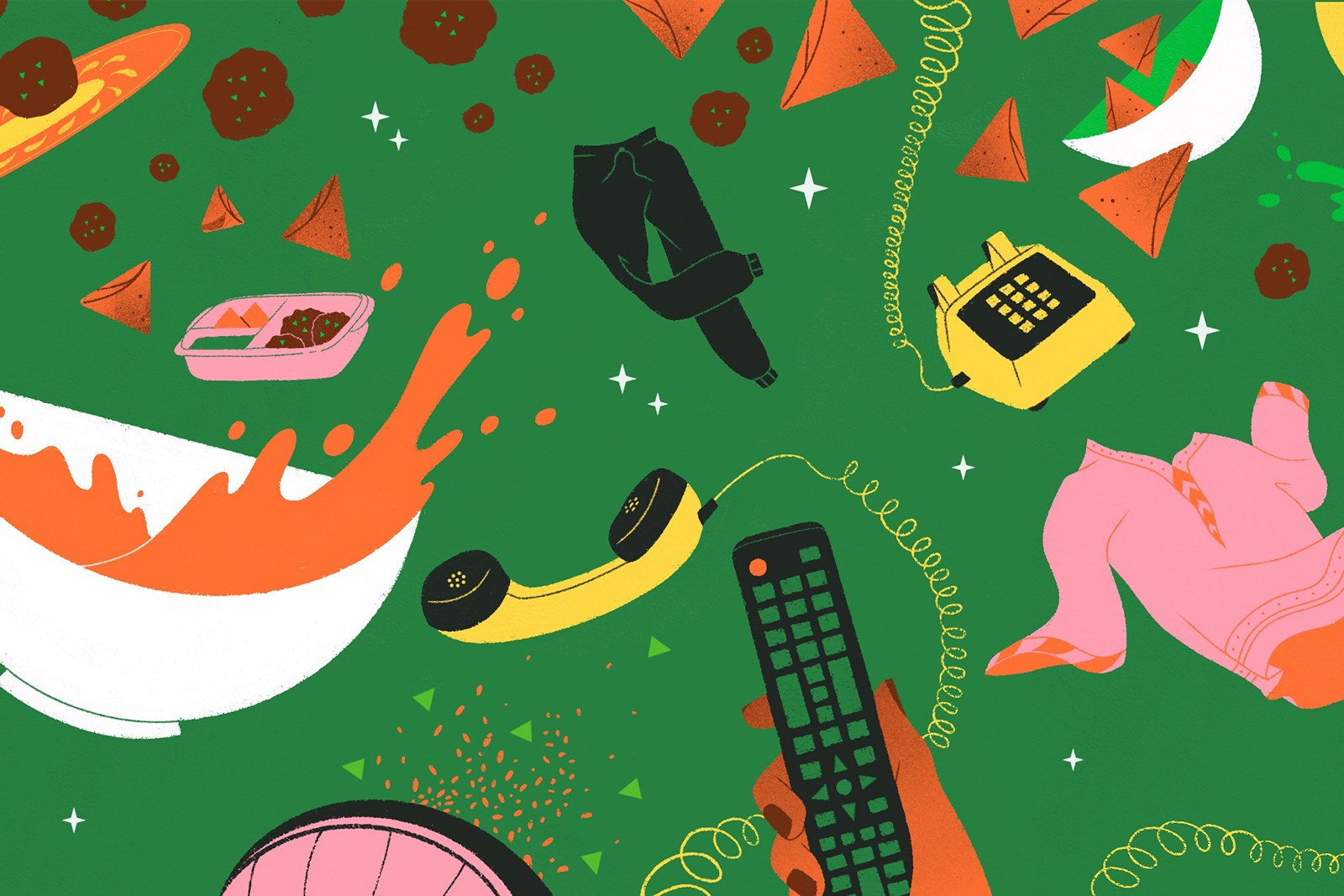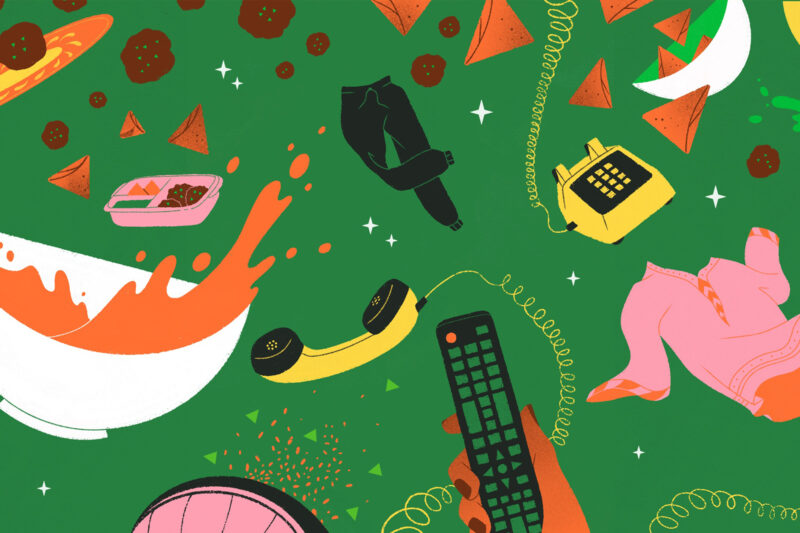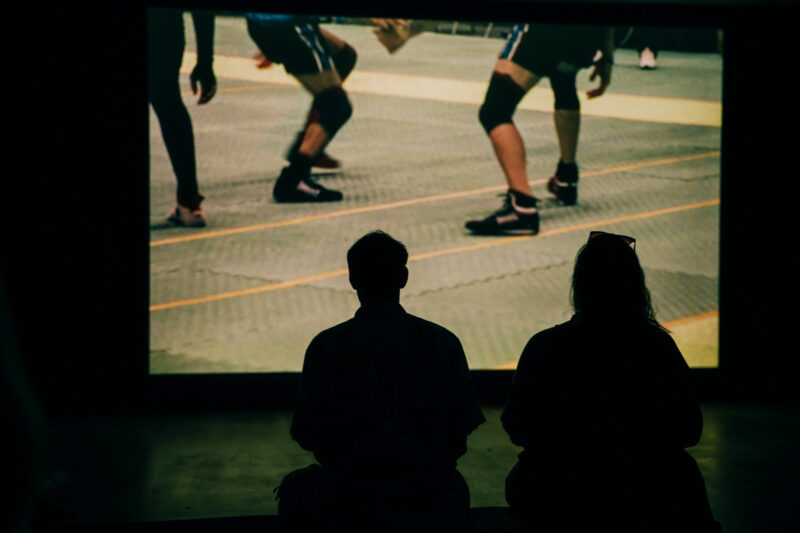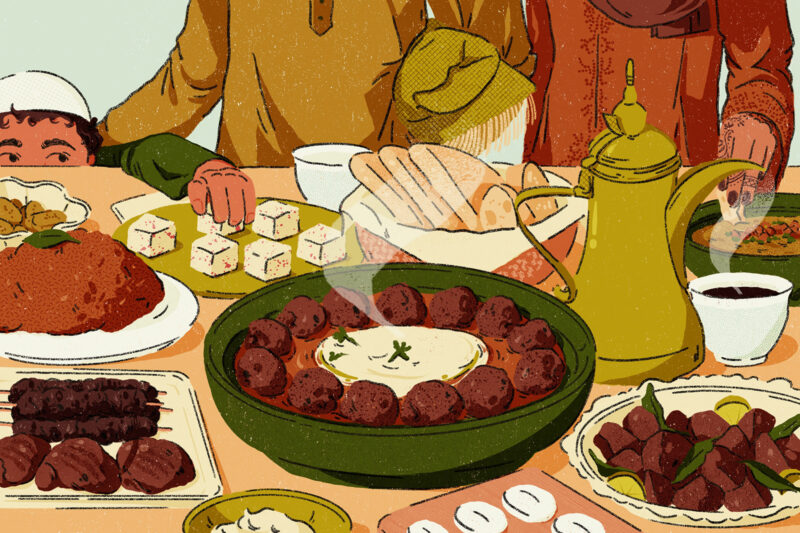Chaotic desi parties: endearing, baffling and somehow entirely on brand
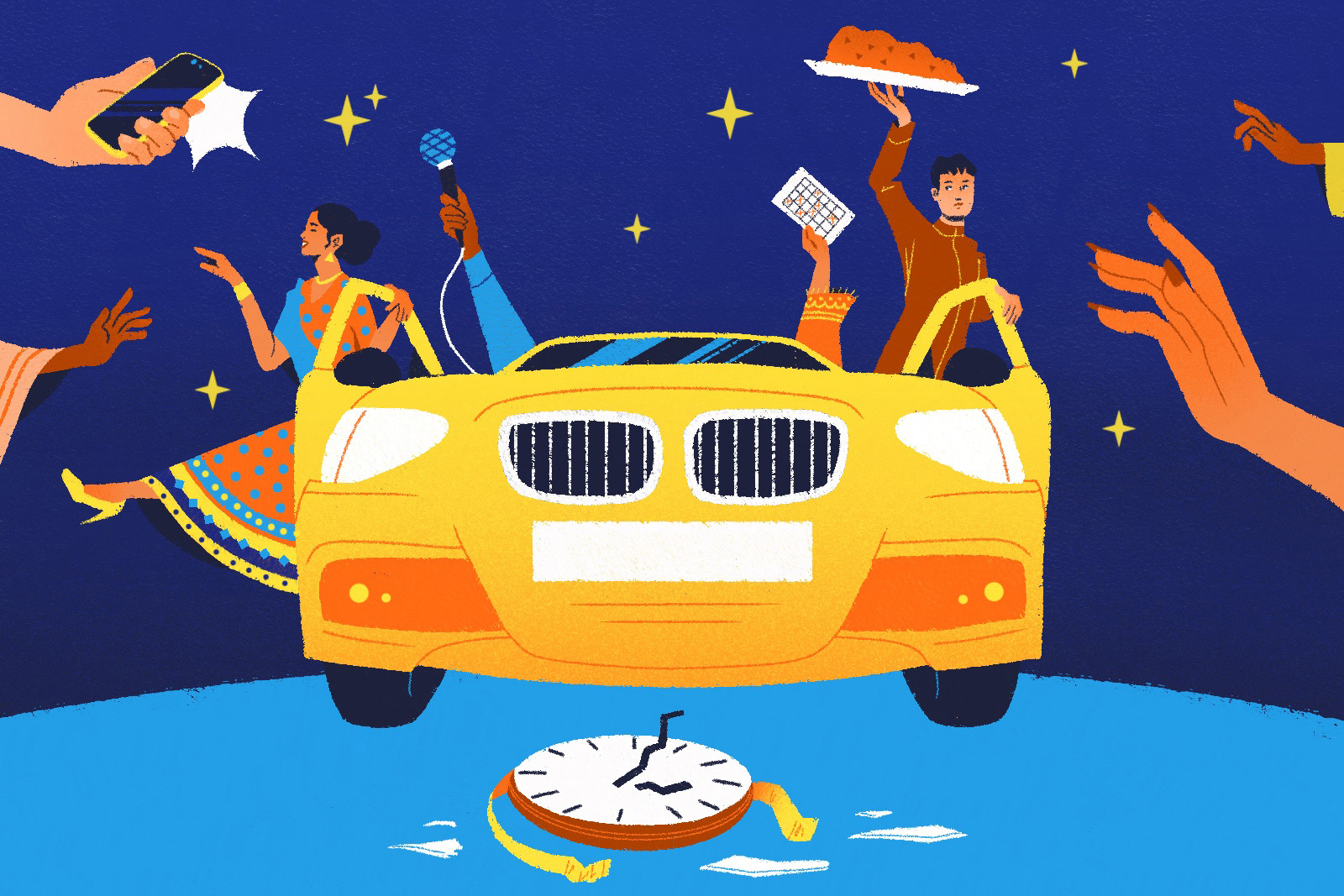
Weddings, charity galas, family gatherings… Why does almost every event come with logistical calamity?
The hotel car park was already at capacity by the time my guest and I turned up to a recent gala in Glasgow. A tumultuous orchestra of hazard lights and questionable driving skills. Cars were wedged into flower beds, double parked across pavements, mounted on asphalt islands. The designated bays treated more like suggestions than rules.
Rather than circle endlessly for a space, we surrendered and parked in a multistorey 15 minutes’ walk away, racing back through the drizzle in a flurry of high heels and shiny sequins.
By the time we reached the hotel, we were technically late but spiritually early. The event still hadn’t officially started. In fact, a frustrated uncle on stage was busy telling everyone off for ignoring the seating plan. “Please sit in your assigned seats,” he pleaded, as if this were a school assembly and not an awards ceremony. Heads down, we tiptoed to our table while the rest of the room collectively pretended to have hearing loss.
Within minutes, I realised I’d stumbled straight into a live round of desi event bingo. Parking pandemonium? Check. Uncle performing a one-man show with the only mic? Check. Guests ignoring instructions while looking personally offended when called out? Check. The self-assigned haram fashion police exchanging judgmental looks? Double check.
The chaos was by no means unique to this one night. It’s weddings, Eid dinners, charity fundraisers, family parties all somehow running on the same universally disjointed operating system: the DJ interrupting the beat to beg the owner of a silver BMW 3 Series to unblock the fire exit. The slideshow that won’t load because someone forgot to bring the right cable. Photographers capturing guests eating instead of the moments people actually want to remember. Almost every gathering comes with a hefty dose of logistical calamity, no matter the scale.
The ritual collision of tradition and modernity is fascinating to watch. The way solemn duas segue seamlessly into Drake. One minute everyone’s murmuring “ameen”, the next the lights dip and we’re dancing to a remix of Chaiyya Chaiyya. It’s endearing, baffling and somehow entirely on brand. The kind of chaos that accidentally reflects us at our best — our messy but nuanced lives proudly on display, even if not always appropriate.
Take weddings. What were once three-day sprints toward happily ever after have become endurance marathons padded with pre-mehndi dinners and themed photoshoots. A few weekends stretch into a month that could rival the intensity of Paris Fashion Week with sparklier outfits.
And then there’s time itself, a concept we’ve long outgrown. It’s as if by abandoning punctuality we’ve gained the right to bend it entirely. An invite might say 6pm, but everyone knows dinner will be at nine. We’ve basically turned lateness into community theatre. If you want guests at five, you drop three in the group chat. We’re constantly running calculations just to figure out when to leave for Nando’s. Desi maths at its finest.
The irony is that food is what these events live and die by. If the biryani was bad, it’s all the wedding will be remembered for. Yet somehow we’re perfectly fine serving the meal three hours behind schedule to a room full of increasingly irritable guests who already worked out whether to eat beforehand. We obsess over getting the food right, then serve it based on vibes.
I used to find it all charming, this gloriously absurd unpredictability. The same faces, the same jokes, the same auntie in the aisle recording the bridal entrance to post on Facebook before the happy couple even can. We laugh about it online, sharing memes and anecdotes. But lately, I can’t shake the feeling that we’ve confused affection with apathy. We treat chaos like cultural heritage, something sanctified that must be preserved. If an event starts on time, it feels unnerving, like when you’re allowed to wear shoes inside the house. Maybe, after generations spent in survival mode, we’ve become addicted to the cortisol spikes just to feel alive.
We are a community brimming with warmth, vision and ambition, yet our events rarely reflect that high level of competence. We mistake disarray for authenticity, as if one organised evening would make us less relatable. If only we could allow our joy to stop being swallowed up in the noise.
After years of weddings, Eid parties, fundraisers and fancy nights like this, I’ve realised that while the fashion changes, the pattern never does. Still, I can’t pretend the pull isn’t there. When my favourite cousin walks into the overheated hall and the party shifts from obligation to playground, I know I’m in for a good time. And when Amplifier comes on, I’ll still get up and dance, even if the DJ has to interrupt halfway through to ask, yet again, for a car owner to please move their vehicle.
 Newsletter
Newsletter


